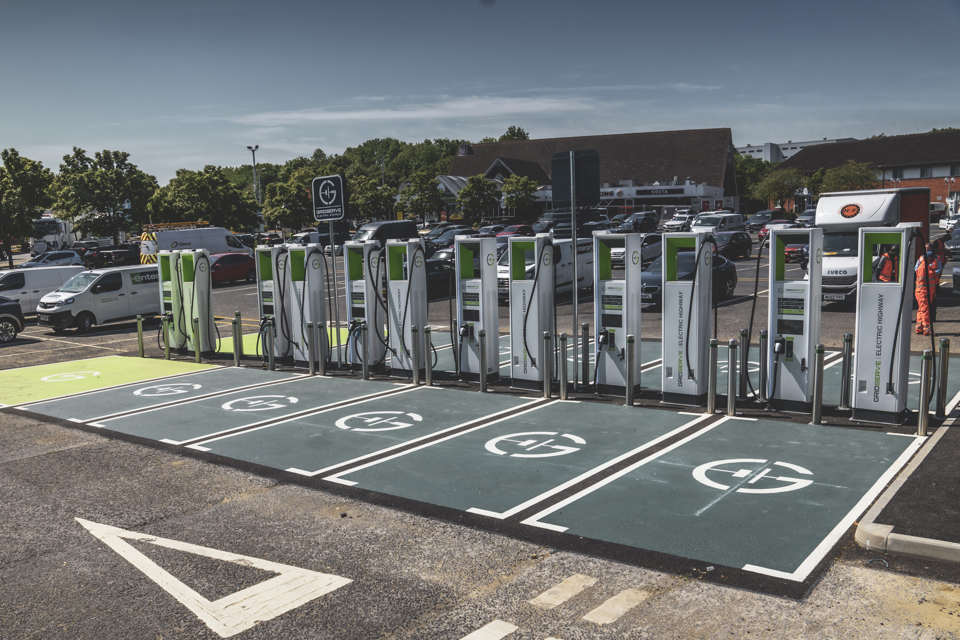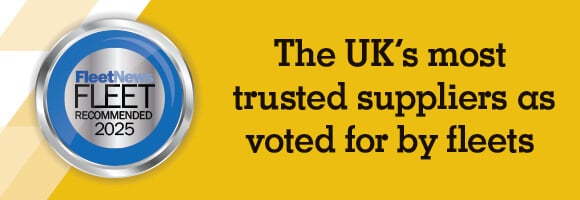Changes to planning rules and reforms to the grid connection process will remove some of the biggest barriers to the rollout of electric vehicle (EV) charge points at motorway services.
That’s according to the boss of Moto Hospitality, who welcomed the Government announcement made in the Autumn Statement.
Ken McMeikan, CEO of Moto Hospitality, said: “I am extremely encouraged by the Government’s decision to transform the planning system in favour of delivering low-carbon energy projects and the prioritisation of EV charging hubs.
“This will go a long way to removing some of the biggest barriers that industry has been facing within EV and is very positive news for everyone involved in driving forward the electric future on the UK’s roads.”
The Government says it will look to remove unnecessary planning constraints by accelerating the expansion of EV charging infrastructure and will consult on amending the National Planning Policy Framework to ensure the planning system prioritises the rollout of EV charge points, including EV charging hubs.
Substantive action is also required to address the lengthy wait to connect to the electricity grid, it said.
As a result, the Government will reform the grid connection process to cut waiting times, including freeing up over 100GW of capacity so that projects can connect sooner.
This, it says, will help to enable the significant majority of projects to get their requested connection date with no wait and, for viable projects, reduce overall connection delays from five years to no more than six months.
RAC analysis of charging facilities at motorway services shows the Government’s target of having six high-powered chargers at all of England’s 119 services by the end of the year is unlikely to be met, with only a quarter having that amount in May.
“The acceptance of the Winser review’s recommendations in full to significantly increase capacity and access to power for businesses like Moto, is vital to allow us to continue to invest in rapidly expanding our network of Ultra Rapid Chargers at sites across the UK,” continued McMeikan.
“This goes right to the heart of what Moto has been calling for and we are delighted that many of the actions we called for in our ‘Motofesto’ have featured in the Chancellor’s Autumn Statement.
“While we wholeheartedly welcome the announcement, accelerating the availability of sufficient power to major travel hubs like Motorway Service Areas needs to be made a national priority and we stand ready to work with the Government during its consultation to feed into its plans and ensure they are delivered as quickly and effectively as possible.”
The Government announcement comes after the Competition and Markets Authority (CMA) reminded motorway service operators and charge point operators not to breach competition laws when planning new infrastructure.
The organisation has already investigated suspected breaches of the Competition Act 1998 in relation to the supply of EV charge points on or near motorways.
It also launched a competition law case into long-term exclusive arrangements for the supply of EV charge points which were entered into between Gridserve Holdings and three motorway service area operators – Moto Holdings, Roadchef and Extra MSA Property (UK).
This followed concerns that such lengthy exclusivity arrangements would foreclose other charge point operators (CPO) from entering the market and thereby impede the effective roll-out of the £950 million rapid charging fund (RCF).
The enforcement action resulted in commitments from all those involved – including commitments to reduce the length of exclusivity periods, and to not enforce exclusive rights at any MSA site that is granted RCF funding.
In an open letter to EV charge point operators and motorway service area operators, Jennifer Halliday, senior director, advocacy and external engagement, at CMA, said: “For drivers to switch to EVs, they must fleet confident that there is a comprehensive, competitive charging network in place across the UK, and that charging is as simple and convenient as filling up with petrol or diesel.
“While we welcome increased private investment and efforts which help to boost charging infrastructure along motorways, it is critical that this investment is carried out in a way that is compliant with competition law and ensures operators can enter and compete fairly.”





















Login to comment
Comments
No comments have been made yet.